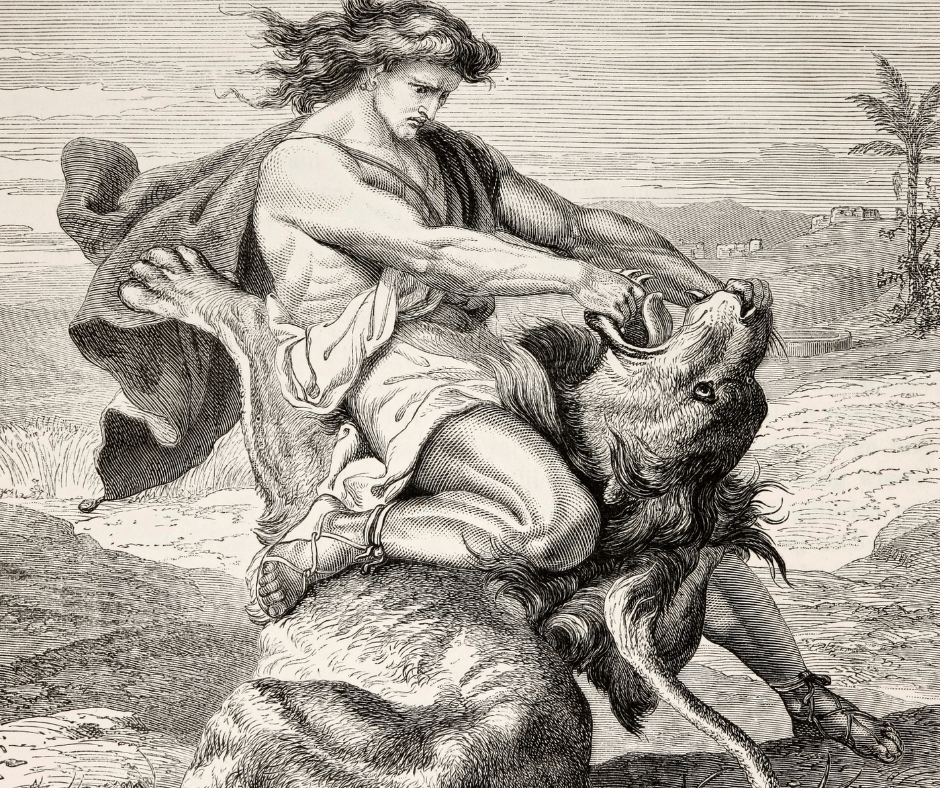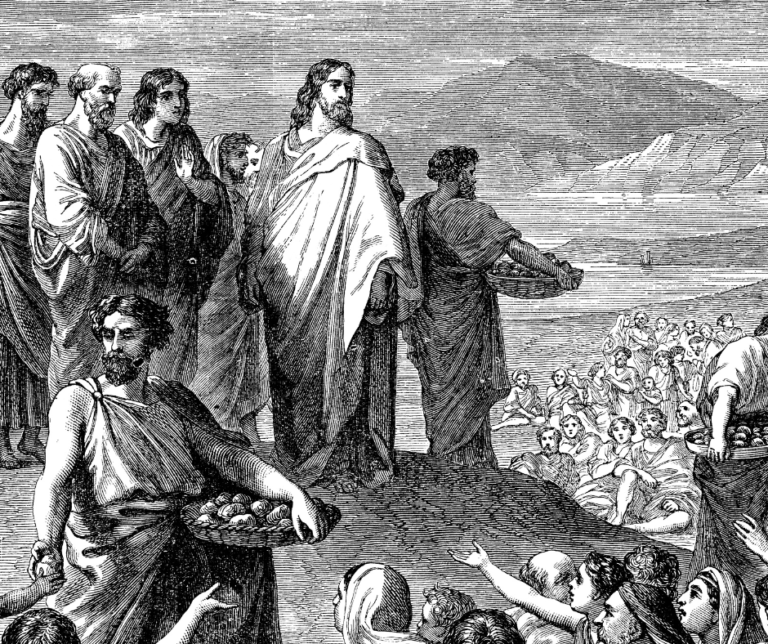7 Powerful and Vital Lessons from the Life of Samson

The remarkable lessons from the life of Samson continue to resonate with us today, offering timeless wisdom about strength, weakness, and redemption. Like a mighty oak tree with shallow roots, Samson’s extraordinary physical power masked deeper vulnerabilities that would ultimately lead to his downfall – and later, his most significant victory.
In this exploration of Samson’s life, we’ll uncover seven vital lessons that speak directly to our modern struggles with purpose, pride, relationships, and redemption. Through his journey from chosen judge to imprisoned servant and finally to sacrificial hero, we’ll see how divine purpose intersects with human frailty. We’ll particularly focus on his divine calling, the danger of unchecked strength, the impact of relationships, and the power of redemption.
What makes Samson’s story so compelling isn’t just the supernatural displays of strength or the dramatic episodes of his life – it’s the deeply human elements we can all relate to. Whether you’re grappling with personal weakness, struggling with important choices, or seeking redemption from past mistakes, Samson’s story offers profound insights for our own life journeys.
The Summary of The Story of Samson
In the sun-baked hills of ancient Israel, during the tumultuous period of the judges, a unique story began to unfold. It started with a promise to a barren woman – a divine visitation that would change the course of Israel’s history (Judges 13:2-5). An angel appeared to Manoah’s wife, announcing the birth of a special son who would be set apart as a Nazirite from birth, dedicated to God’s service.
From these miraculous beginnings, the profound lessons from the life of Samson started taking shape. His birth wasn’t just a blessing to his parents but a strategic move in God’s plan to begin delivering Israel from Philistine oppression. As detailed in Judges 13:24-25, “The woman gave birth to a boy and named him Samson. He grew and the LORD blessed him, and the Spirit of the LORD began to stir him.”
Throughout his adult years, Samson’s life was marked by extraordinary displays of physical strength, yet also by deep personal struggles. He successfully defended Israel numerous times, as recorded in Judges 14-16. Whether it was killing a lion with his bare hands, defeating a thousand men with a donkey’s jawbone, or carrying away Gaza’s city gates, his feats became legendary. The Spirit of the Lord would come upon him in moments of need, demonstrating God’s power through his supernatural strength.
However, Samson’s story also reveals a man wrestling with his calling. His attraction to Philistine women, particularly his infamous relationship with Delilah, ultimately led to his downfall. Despite knowing the source of his strength lay in his uncut hair – a symbol of his Nazirite vow – he eventually succumbed to Delilah’s persistent questioning, revealing his secret (Judges 16:17).
The consequences were severe. The Philistines captured him, gouged out his eyes, and forced him to grind grain in prison. Yet, in this darkness came Samson’s greatest moment of clarity. As his hair grew back, so did his connection with God. His final act, bringing down the temple of Dagon while crying out to the Lord, accomplished more for Israel’s deliverance than all his previous exploits combined (Judges 16:28-30).
The Bible notes that “he killed many more when he died than while he lived” (Judges 16:30). This powerful conclusion earned him a place among the heroes of faith in Hebrews 11, reminding us that God’s grace can work through flawed vessels to accomplish His purposes. Through victories and failures, strength and weakness, Samson’s life stands as a testament to both human frailty and divine redemption.
The story of Samson teaches us invaluable lessons about purpose, power, and redemption. In these biblical narratives, his life serves as both a warning and an encouragement – warning us about the dangers of compromising our calling while encouraging us that even in our deepest failures, God’s redemptive power can still work mightily through us.
Perhaps most importantly, Samson’s story reminds us that true strength isn’t measured by physical might but by submission to God’s purposes. As 2 Corinthians 12:9 would later affirm, God’s power is made perfect in our weakness. In the end, Samson’s greatest victory came not through his strength, but through his surrender to God’s will, leaving an enduring legacy that continues to instruct and inspire believers today. So let’s see some of the lessons from the life of Samson.
1. The Power of Purpose and Divine Calling
Have you ever felt that unmistakable sense that you were born for something greater? That’s exactly where our story begins. Before Samson took his first breath, an angel delivered an extraordinary message to his parents (Judges 13:3-5). Their son would be set apart – a Nazirite from birth, destined to begin Israel’s deliverance from Philistine oppression.
The lessons from the life of Samson teach us that purpose isn’t just assigned – it’s woven into our very existence. His Nazirite vow wasn’t just about avoiding strong drink or keeping his hair uncut; it was a visible reminder of an invisible calling. Like a royal seal on a sacred letter, these restrictions marked him as someone set apart for divine purposes.
Think about the weight of such a calling. As a judge of Israel, Samson carried not just his own destiny, but the hopes of an entire nation. Judges 15:20 tells us he led Israel for twenty years. Yet, with great power came great responsibility – a balance Samson often struggled to maintain. His story reminds us that divine gifts aren’t meant to be hoarded but stewarded. When God places a calling on your life, it’s not just about what you can do, but about what you’re meant to do for others.
2. The Danger of Unchecked Strengths
Strength unchecked by wisdom becomes our greatest vulnerability. As we delve deeper into the lessons from the life of Samson, we discover a man who could tear apart lions with his bare hands (Judges 14:6) but couldn’t tame his own impulses. It’s a startling paradox that speaks volumes to us today.
Picture a mighty oak tree with shallow roots – impressive to behold but vulnerable to storms. Samson’s supernatural strength made him virtually unbeatable in physical confrontations, yet this same strength bred a dangerous overconfidence. In Judges 16:20, we find perhaps the most tragic words in his story: “He did not know that the LORD had left him.” His strength had become such a crutch that he didn’t even notice when its true source departed.
This reflects a universal truth: our greatest strengths, when not balanced by humility and wisdom, can become the very tools of our undoing. Whether it’s natural talent, intelligence, or charisma, any gift can become a liability when we begin to rely on it more than we rely on God. The apostle Paul would later echo this principle in 2 Corinthians 12:9, reminding us that true strength often manifests in our moments of weakness.
3. The Impact of Relationships on Destiny
One of the most profound lessons from the life of Samson plays out in his relationships, particularly with women. Despite his immense physical strength, Samson displayed a consistent weakness in matters of the heart. The biblical account in Judges 14-16 reads almost like a cautionary tale about the power of emotional attachments.
His pattern with Philistine women wasn’t just about poor romantic choices – it represented a deeper issue of compromising his calling for temporary pleasures. The culmination of this pattern appears in his relationship with Delilah (Judges 16:4-21). Here was a man who could break any physical bond, yet found himself emotionally shackled to someone who clearly didn’t have his best interests at heart. The irony is striking: the strongest man in the world, rendered powerless by his own heart’s choices.
Through Samson’s story, we learn that relationships can either anchor us to our purpose or drift us away from it. His experience with Delilah teaches us that love shouldn’t blind judgment – when someone repeatedly tries to harm us, wisdom demands that we pay attention to their actions rather than their words. “Do not be unequally yoked,” as 2 Corinthians 6:14 would later counsel, takes on vivid meaning in light of Samson’s experiences.
4. The Cost of Compromising Values
In every life story, there comes a moment of decision – a crossroads where convenience meets conviction. The lessons from the life of Samson reveal the subtle danger of moral compromise. Like water gradually eroding a rock, Samson’s drift from his values didn’t happen overnight. It began with small decisions that seemed insignificant at the time (Judges 14:8-9).
Remember when he touched a dead lion’s carcass, violating his Nazirite vow? Or when he first began sharing the secret of his strength with Delilah? These weren’t dramatic falls but subtle slides. Proverbs 25:28 says, “Like a city whose walls are broken through is a person who lacks self-control.” Samson’s life exemplifies this truth with haunting clarity.
The real tragedy wasn’t just in the final revelation of his secret, but in the gradual erosion of his character that led to that moment. Each compromise made the next one easier, each concession to temporary pleasure weakened his resolve, until finally, the mighty judge of Israel found himself doing what seemed unthinkable at the start – betraying his sacred calling for momentary comfort.
5. The Reality of Consequences
The harsh grinding of the prison mill became Samson’s daily reality – a far cry from his days as Israel’s champion. This stark contrast teaches us one of the most sobering lessons from the life of Samson: our choices, no matter how private we think they are, often have public consequences. In Judges 16:21, we see the mighty judge reduced to a spectacle, his eyes gouged out, performing for his enemies’ amusement.
The biblical principle that “you reap what you sow” (Galatians 6:7-8) played out dramatically in Samson’s life. Breaking his Nazirite vow didn’t just affect his relationship with God; it impacted an entire nation that depended on his leadership. Think about it – the man set apart to deliver Israel from the Philistines ended up as their prisoner, all because of a series of compromises that seemed harmless at the time.
But here’s what’s fascinating: even in the midst of consequences, God wasn’t finished with Samson. Numbers 14:18 reminds us that while God will by no means clear the guilty, He is “slow to anger, abounding in love.” Samson’s story teaches us that while we can’t escape the natural results of our actions, God’s purposes can still prevail through our failures.
6. The Power of Redemption
Perhaps the most inspiring lessons from the life of Samson emerge from his darkest moments. In the Philistine prison, stripped of his strength and sight, Samson discovered a profound truth: sometimes our greatest victories come after our worst defeats. As his hair began to grow back (Judges 16:22), so did his connection with God – proving that it’s never too late for redemption.
The turning point came during the festival of Dagon. Imagine the scene: thousands of Philistines gathered to mock the fallen judge of Israel. But in that moment of humiliation, Samson offered what might be his most sincere prayer recorded in Scripture: “Sovereign Lord, remember me” (Judges 16:28). This wasn’t the brash warrior of his youth, but a broken man who had finally learned to depend fully on God.
In his final act, Samson achieved more than he had in all his previous exploits combined (Judges 16:30). This mirrors the beautiful promise in Joel 2:25, where God says He can restore the years the locusts have eaten. The message is clear: redemption isn’t just about getting back what was lost – sometimes it’s about finding a whole new purpose in our brokenness.
7. The Legacy Factor
When we reflect deeply on the lessons from the life of Samson, we find a story that’s less about physical strength and more about the power of redemption. What’s remarkable is that despite his flaws, Samson is mentioned in Hebrews 11:32-33 among the heroes of faith. This inclusion teaches us something profound about God’s grace and the complexity of human legacy.
Through both his triumphs and failures, Samson left an indelible mark on Israel’s history. His story is like a tapestry woven with threads of both victory and defeat, strength and weakness, pride and humility. 1 Corinthians 10:11 tells us that these accounts were written for our instruction, and few biblical narratives offer as many practical lessons about human nature and divine grace as Samson’s.
The ultimate legacy of Samson isn’t found in his feats of strength or even in his failures, but in the testimony that God can use imperfect people for His perfect purposes. As David would later write in Psalm 51:17, “The sacrifices of God are a broken spirit; a broken and contrite heart, O God, you will not despise.” Samson’s life stands as a testament to this truth – that our weaknesses, when surrendered to God, can become platforms for displaying His strength.
Through all these sections, we see a consistent narrative thread: God’s unwavering faithfulness even in the face of human inconsistency. Each part of Samson’s story builds upon the previous, creating a powerful testimony to both the consequences of our choices and the redemptive power of God’s grace. These lessons continue to resonate with us today, reminding us that our stories, like Samson’s, are still being written, and it’s never too late for God to turn our greatest failures into testimonies of His grace.
Conclusion:
Samson’s life stands as a powerful reminder that our greatest strengths can become our most dangerous weaknesses if not properly stewarded. While his story is filled with dramatic highs and lows, it ultimately points to the transformative power of redemption and the reality that it’s never too late to fulfill our purpose. The lessons from his life challenge us to examine our own hearts, relationships, and choices, reminding us that true strength lies not in our natural abilities, but in how we use them in service of a greater purpose.
You’ll also love:
The Parable of the Talents: 7 Essential Life Lessons
Can I divorce and remarry? A Christian Perspective
Learning from the Wisest King: 10 Valuable Lessons from Solomon
7 Life Changing Lessons From The Parable of the Samaritan
Can women be pastors? – Everything you need to know






